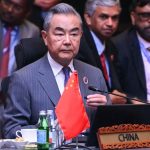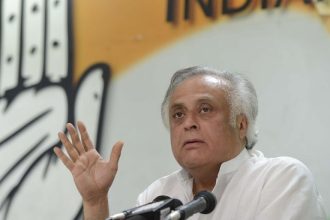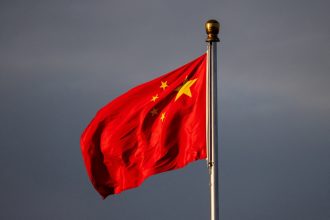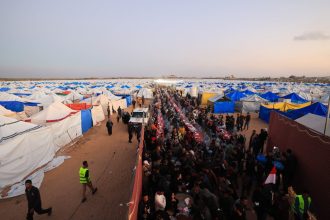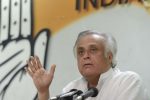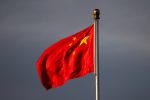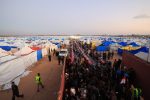Beirut, Aug 14 – In a rare and direct display of defiance, Lebanon’s top leaders made it crystal clear on Wednesday: their country’s decisions will be made in Beirut, not dictated from abroad. The strong words came during a high-profile visit by Ali Larijani, Iran’s Supreme National Security Council chief, at a time when tensions over Hezbollah’s future are at boiling point.
Lebanon’s stance was unmistakable. Prime Minister Nawaf Salam declared, “Lebanon will not accept, in any form, any interference in its internal affairs,” emphasizing that any partner, including Iran, must respect the country’s sovereignty. President Joseph Aoun echoed this, warning that no one should use foreign backing as a weapon or political bargaining chip.
This visit comes against the backdrop of a dramatic shift in Lebanon’s political landscape. For decades, Iran has held significant sway in the country through its funding and arming of Hezbollah. But now, with Hezbollah weakened by over a year of intense conflict with Israel — a war that claimed the life of its longtime leader Hassan Nasrallah — the balance of power is shifting. The group has also lost key regional support, most notably after the fall of Syrian President Bashar al-Assad, a vital link in its supply chain.
Adding to the turbulence, Lebanon’s government has ordered the army to develop a plan to disarm Hezbollah by the end of the year. Tehran has publicly opposed this move, calling it a “grave sin.” Last week, an adviser to Iran’s supreme leader bluntly stated that the Islamic Republic would not support such a plan.
In Beirut, Larijani pushed back against the idea that Iran is meddling, claiming it’s the United States that is trying to impose its will through proposals and deadlines. “Any decision that the Lebanese government makes in consultation with the resistance is respected by us,” he said, pledging Iran’s continued support for Lebanon.
Yet, Prime Minister Salam’s tone signaled a new chapter. “Lebanon’s decisions are made by the Lebanese themselves, who tolerate neither tutelage nor diktat,” he said firmly, adding that Lebanon — a long-time defender of the Palestinian cause — doesn’t need “lessons” from anyone.
Larijani’s visit also included meetings with Parliament Speaker Nabih Berri, a close ally of Hezbollah, and a planned trip to the grave of Nasrallah, whose death remains a defining moment in Lebanon’s recent history.
Whether this visit marks the start of a diplomatic recalibration or deepens the existing divides remains to be seen. What’s clear is that Lebanon is publicly reclaiming its voice — and it’s louder than it has been in years.

